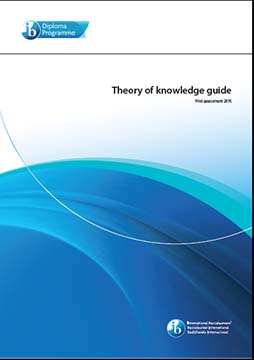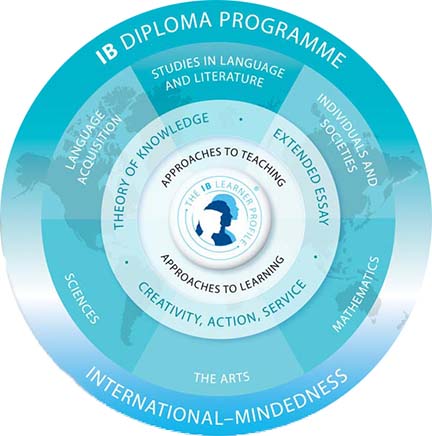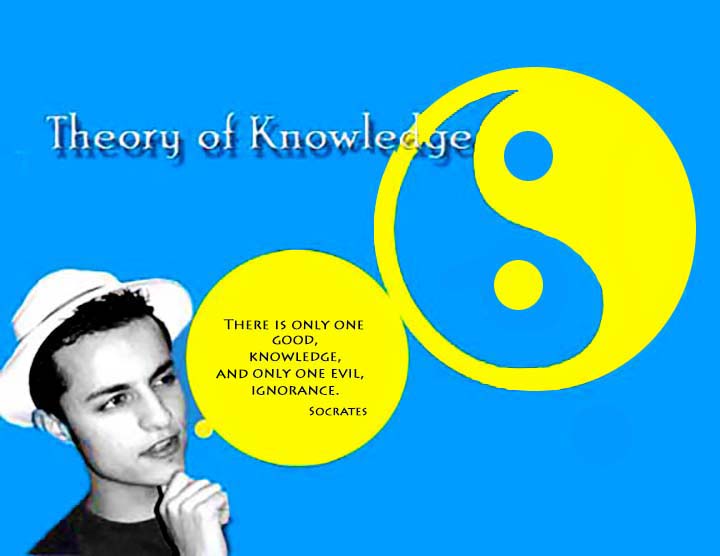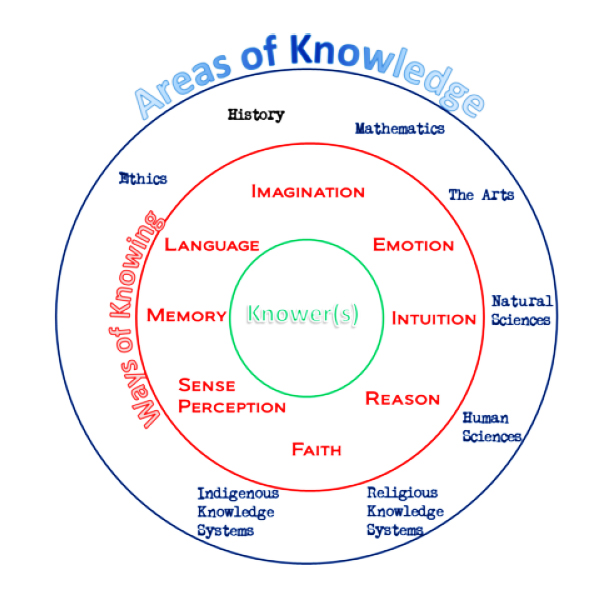|
Description of the Course: Its Components
Theory of Knowledge
is an epistemological course at the center of the IB program. The course
is offered in the junior or senior year and is designed to encourage
students to challenge what they know, how they know it, and to what
extent they can be certain of that knowledge.
To this end the
"knower" first examines the filters (called
ways of knowing) through which initial
knowledge passes: Language, Imagination, Emotion, Intuition, Reason,
Faith, Sense Perception, and Memory.
The knower then
considers how knowledge is organized into categories (areas
of
knowing):
History, Art, Natural Science, Human Science,
Ethics, Religious Knowledge Systems, Indigenous Knowledge Systems, They
will consider how theories, ideas, and patterns might work across
disciplines or fall short of this.
2015 ToK Subject Guide
The
ToK course went through a major revision in
2015. Several ways of knowing and areas of knowing were added to the
course syllabus. To familiarize yourself with the new guidelines,
peruse the new guide below.

|
|
|
Requirements of the Course
There are two major assessments: a paper
and an oral:
The paper
should be from 1200 -1400 words, typed and double-spaced with a work
cited page. It is a response to one of six prescribed titles posted
by the IB Program annually. Though the paper is assessed on a 10
point rubric, the total score is doubled so that it counts for 20
maximum points making it 67% of the combined ToK grade. You
will need to fill out a planning and progress form
TK-PPF and submit it to
the teacher. The due date for turnitin.com this year is
February 17, 2016
The oral
which counts 33% of the
total grade is delivered in groups of 3 and should
examine a contemporary real-life
problem or conflict. Each member must submit a
pre-planning
form
TK_PPD to the teacher prior to his/her oral. Though
the student signs it, the content should be the same for all
students in the group. It will mailed to
the IBO.
The
maximum
time
allotted for each student is 10 minutes. A visual should accompany
the presentation and the group should choose an engaging format for
delivery: news show, debate, role
play, panel, game show, courtroom procedure, etc. No group should
exceed the 1 hour mark. Allow at least 10 minutes at the end for audience
questions.

|

 image by Steven Barbour
image by Steven Barbour